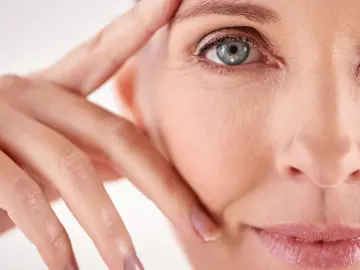Whilst we at Save Face are primarily concerned with the proper regulation of non-surgical cosmetic procedures, we also think it’s important to share our expertise on all things health and beauty related.
One thing that we’ve noticed over our collective years of experience is that whilst many young women seem happy to spend money on anti-ageing products and procedures, they’re less inclined to change their lifestyles in order to slow the effects of ageing. We at Save Face think this is an interesting discrepancy, especially while concerns about living a healthy lifestyle are on the rise.
Small changes in your lifestyle can have a big impact on your appearance – and we’re not just talking about weight loss. It’s for this reason that we thought we’d remind our readers about factors that contribute significantly to ageing, and hope that it will inspire you to be just a little less cavalier with your skin while you still have the power to make a difference.
Healthy Skin is Hydrated Skin
It’s certainly a hard one to swallow, but the fact is that alcohol has a considerable effect on your appearance. It’s a hepatoxin, which means it specifically damages the liver, and it also has an extensive dehydrating effect on your entire body. Remember, your skin is largely composed of water, and it is essential for it to function correctly. As well as depriving it of water, alcohol is also thought to deplete the skin of vital vitamins and nutrients.
In the short-term, it causes bloating and dark circles, and can leave the skin looking sallow and dull. The longer term effects are also quite concerning – problems like Rosacea are also on the horizon for those who drink heavily.
Side note: Unfortunately, caffeine is also a diuretic, which makes it harder for your body to hold onto moisture, so if you are going to drink it, remember to mitigate its effect by drinking plenty of water.
Your Skin and the Sun
Whilst sun-related skin damage is common knowledge, it needs emphasising due to the severity of its effects. Sun exposure causes most of the changes in the skin that are generally attributed to ageing. Ultraviolet light damages elastin in the skin, causing it to sag, stretch and lose its elasticity. This loss of elastin also causes the skin to bruise and tear more easily and take longer to heal.
Sun damage also causes mottled pigmentation, age spots and thread veins, all which contribute to an aged appearance.
The single most important thing you can do to protect your skin is keep it out of the sun. Wear hats, stay in the shade, and wear a high SPF every day and reapply regularly.
Eat Right for Healthier Skin
Packaged foods and a high-fat, high-sugar, high-salt diet will, unsurprisingly, do your skin no good.
Eating a nutrient-packed, balanced diet can help slow the ageing process. Antioxidant rich foods such as olive oil, nuts and blueberries are proven to mitigate oxidative damage caused by the free radicals that are all around us.
For anyone worried that they’ll have to forego all of their treats, we also have some more welcome news. Thankfully, red wine and dark chocolate (in moderation) are also beneficial; red wine contains a compound called resveratrol that is thought to activate genes that slow cellular ageing and the cocoa in chocolate is rich in flavanols which help to preserve the healthy functioning of blood vessels.
Being Kind to Yourself is Good for Your Skin
How you feel on the inside can affect how you look on the outside – stress, depression and anxiety have all been linked to increased hair, skin and nail problems. So much so, there’s a new field of medicine devoted entirely to it – psychodermatology.
Stress in particular has a negative effect on the skin, as when you’re tense, your body releases stress hormones which can increase the skin’s oil production and have a pro-inflammatory effect. This also happens when you don’t get enough sleep – the stress that this causes your body triggers the release of these hormones, too.
Stress has also been proven to be a worsening factor for skin complaints such as psoriasis and dermatitis, and is also thought to impair skin barrier functions.
Save Face
The negative effects of any of the contributing factors mentioned above can be addressed with non-surgical cosmetic procedures. If you would like to read more about procedures like microdermabrasion, dermal fillers, botulinum toxin injections and others, take a look at our information pages for in depth impartial advice.


